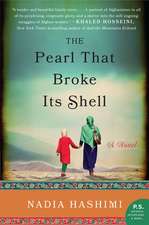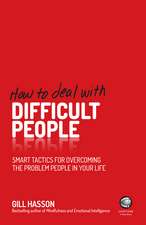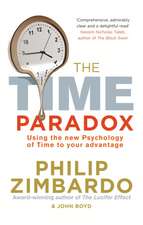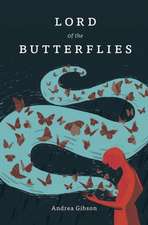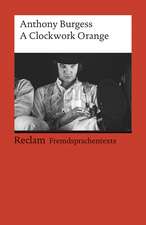Americanah
Autor Chimamanda Ngozi Adichieen Limba Engleză Paperback – 27 feb 2014
| Toate formatele și edițiile | Preț | Express |
|---|---|---|
| Paperback (4) | 64.74 lei 3-5 săpt. | +13.60 lei 6-12 zile |
| HarperCollins Publishers – 11 mai 2023 | 64.74 lei 3-5 săpt. | +13.60 lei 6-12 zile |
| HarperCollins Publishers – 27 feb 2014 | 64.92 lei 3-5 săpt. | +14.25 lei 6-12 zile |
| HarperCollins Publishers – 13 mai 2021 | 64.92 lei 3-5 săpt. | +14.25 lei 6-12 zile |
| Anchor Books – 3 mar 2014 | 71.23 lei 3-5 săpt. | +16.80 lei 6-12 zile |
| Hardback (1) | 206.24 lei 3-5 săpt. | |
| Knopf Publishing Group – 13 mai 2013 | 206.24 lei 3-5 săpt. |
Preț: 64.92 lei
Nou
12.42€ • 12.97$ • 10.28£
Carte disponibilă
Livrare economică 14-28 martie
Livrare express 27 februarie-05 martie pentru 24.24 lei
Specificații
ISBN-10: 000735634X
Pagini: 477
Dimensiuni: 125 x 196 x 32 mm
Greutate: 0.35 kg
Editura: HarperCollins Publishers
Colecția Fourth Estate
Descriere
SHORTLISTED FOR THE BAILEY'S WOMEN'S PRIZE FOR FICTION 2014. From the award-winning author of 'Half of a Yellow Sun,' a powerful story of love, race and identity. As teenagers in Lagos, Ifemelu and Obinze fall in love.
Their Nigeria is under military dictatorship, and people are fleeing the country if they can. The self-assured Ifemelu departs for America. There she suffers defeats and triumphs, finds and loses relationships, all the while feeling the weight of something she never thought of back home: race.
Obinze had hoped to join her, but post-9/11 America will not let him in, and he plunges into a dangerous, undocumented life in London. Thirteen years later, Obinze is a wealthy man in a newly democratic Nigeria, while Ifemelu has achieved success as a blogger. But after so long apart and so many changes, will they find the courage to meet again, face to face? Fearless, gripping, spanning three continents and numerous lives, the National Book Critics Circle Award-winning 'Americanah' is a richly told story of love and expectation set in today's globalized world.
Notă biografică
Extras
But she did not like that she had to go to Trenton to braid her hair. It was unreasonable to expect a braiding salon in Princeton—the few black locals she had seen were so light-skinned and lank-haired she could not imagine them wearing braids—and yet as she waited at Princeton Junction station for the train, on an afternoon ablaze with heat, she wondered why there was no place where she could braid her hair. The chocolate bar in her handbag had melted. A few other people were waiting on the platform, all of them white and lean, in short, flimsy clothes. The man standing closest to her was eating an ice cream cone; she had always found it a little irresponsible, the eating of ice cream cones by grown-up American men, especially the eating of ice cream cones by grown-up American men in public. He turned to her and said, “About time,” when the train finally creaked in, with the familiarity strangers adopt with each other after sharing in the disappointment of a public service. She smiled at him. The graying hair on the back of his head was swept forward, a comical arrangement to disguise his bald spot. He had to be an academic, but not in the humanities or he would be more self-conscious. A firm science like chemistry, maybe. Before, she would have said, “I know,” that peculiar American expression that professed agreement rather than knowledge, and then she would have started a conversation with him, to see if he would say something she could use in her blog. People were flattered to be asked about themselves and if she said nothing after they spoke, it made them say more. They were conditioned to fill silences. If they asked what she did, she would say vaguely, “I write a lifestyle blog,” because saying “I write an anonymous blog called Raceteenth or Various Observations About American Blacks (Those Formerly Known as Negroes) by a Non-American Black” would make them uncomfortable. She had said it, though, a few times. Once to a dreadlocked white man who sat next to her on the train, his hair like old twine ropes that ended in a blond fuzz, his tattered shirt worn with enough piety to convince her that he was a social warrior and might make a good guest blogger. “Race is totally overhyped these days, black people need to get over themselves, it’s all about class now, the haves and the have-nots,” he told her evenly, and she used it as the opening sentence of a post titled “Not All Dreadlocked White American Guys Are Down.” Then there was the man from Ohio, who was squeezed next to her on a flight. A middle manager, she was sure, from his boxy suit and contrast collar. He wanted to know what she meant by “lifestyle blog,” and she told him, expecting him to become reserved, or to end the conversation by saying something defensively bland like “The only race that matters is the human race.” But he said, “Ever write about adoption? Nobody wants black babies in this country, and I don’t mean biracial, I mean black. Even the black families don’t want them.”
He told her that he and his wife had adopted a black child and their neighbors looked at them as though they had chosen to become martyrs for a dubious cause. Her blog post about him, “Badly-Dressed White Middle Managers from Ohio Are Not Always What You Think,” had received the highest number of comments for that month. She still wondered if he had read it. She hoped so. Often, she would sit in cafés, or airports, or train stations, watching strangers, imagining their lives, and wondering which of them were likely to have read her blog. Now her ex-blog. She had written the final post only days ago, trailed by two hundred and seventy-four comments so far. All those readers, growing month by month, linking and cross-posting, knowing so much more than she did; they had always frightened and exhilarated her. SapphicDerrida, one of the most frequent posters, wrote: I’m a bit surprised by how personally I am taking this. Good luck as you pursue the unnamed “life change” but please come back to the blogosphere soon. You’ve used your irreverent, hectoring, funny and thought-provoking voice to create a space for real conversations about an important subject. Readers like SapphicDerrida, who reeled off statistics and used words like “reify” in their comments, made Ifemelu nervous, eager to be fresh and to impress, so that she began, over time, to feel like a vulture hacking into the carcasses of people’s stories for something she could use. Sometimes making fragile links to race. Sometimes not believing herself. The more she wrote, the less sure she became. Each post scraped off yet one more scale of self until she felt naked and false.
The ice-cream-eating man sat beside her on the train and, to discourage conversation, she stared fixedly at a brown stain near her feet, a spilled frozen Frappuccino, until they arrived at Trenton. The platform was crowded with black people, many of them fat, in short, flimsy clothes. It still startled her, what a difference a few minutes of train travel made. During her first year in America, when she took New Jersey Transit to Penn Station and then the subway to visit Aunty Uju in Flatlands, she was struck by how mostly slim white people got off at the stops in Manhattan and, as the train went further into Brooklyn, the people left were mostly black and fat. She had not thought of them as “fat,” though. She had thought of them as “big,” because one of the first things her friend Ginika told her was that “fat” in America was a bad word, heaving with moral judgment like “stupid” or “bastard,” and not a mere description like “short” or “tall.” So she had banished “fat” from her vocabulary. But “fat” came back to her last winter, after almost thirteen years, when a man in line behind her at the supermarket muttered, “Fat people don’t need to be eating that shit,” as she paid for her giant bag of Tostitos. She glanced at him, surprised, mildly offended, and thought it a perfect blog post, how this stranger had decided she was fat. She would file the post under the tag “race, gender and body size.” But back home, as she stood and faced the mirror’s truth, she realized that she had ignored, for too long, the new tightness of her clothes, the rubbing together of her inner thighs, the softer, rounder parts of her that shook when she moved. She was fat.
She said the word “fat” slowly, funneling it back and forward, and thought about all the other things she had learned not to say aloud in America. She was fat. She was not curvy or big-boned; she was fat, it was the only word that felt true. And she had ignored, too, the cement in her soul. Her blog was doing well, with thousands of unique visitors each month, and she was earning good speaking fees, and she had a fellowship at Princeton and a relationship with Blaine—“You are the absolute love of my life,” he’d written in her last birthday card—and yet there was cement in her soul. It had been there for a while, an early morning disease of fatigue, a bleakness and borderlessness. It brought with it amorphous longings, shapeless desires, brief imaginary glints of other lives she could be living, that over the months melded into a piercing homesickness. She scoured Nigerian websites, Nigerian profiles on Facebook, Nigerian blogs, and each click brought yet another story of a young person who had recently moved back home, clothed in American or British degrees, to start an investment company, a music production business, a fashion label, a magazine, a fast-food franchise. She looked at photographs of these men and women and felt the dull ache of loss, as though they had prised open her hand and taken something of hers. They were living her life. Nigeria became where she was supposed to be, the only place she could sink her roots in without the constant urge to tug them out and shake off the soil. And, of course, there was also Obinze. Her first love, her first lover, the only person with whom she had never felt the need to explain herself. He was now a husband and father, and they had not been in touch in years, yet she could not pretend that he was not a part of her homesickness, or that she did not often think of him, sifting through their past, looking for portents of what she could not name.
The rude stranger in the supermarket—who knew what problems he was wrestling with, haggard and thin-lipped as he was—had intended to offend her but had instead prodded her awake.
She began to plan and to dream, to apply for jobs in Lagos. She did not tell Blaine at first, because she wanted to finish her fellowship at Princeton, and then after her fellowship ended, she did not tell him because she wanted to give herself time to be sure. But as the weeks passed, she knew she would never be sure. So she told him that she was moving back home, and she added, “I have to,” knowing he would hear in her words the sound of an ending.
“Why?” Blaine asked, almost automatically, stunned by her announcement. There they were, in his living room in New Haven, awash in soft jazz and daylight, and she looked at him, her good, bewildered man, and felt the day take on a sad, epic quality. They had lived together for three years, three years free of crease, like a smoothly ironed sheet, until their only fight, months ago, when Blaine’s eyes froze with blame and he refused to speak to her. But they had survived that fight, mostly because of Barack Obama, bonding anew over their shared passion. On election night, before Blaine kissed her, his face wet with tears, he held her tightly as though Obama’s victory was also their personal victory. And now here she was telling him it was over.
“Why?” he asked. He taught ideas of nuance and complexity in his classes and yet he was asking her for a single reason, the cause. But she had not had a bold epiphany and there was no cause; it was simply that layer after layer of discontent had settled in her, and formed a mass that now propelled her. She did not tell him this, because it would hurt him to know she had felt that way for a while, that her relationship with him was like being content in a house but always sitting by the window and looking out.
“Take the plant,” he said to her, on the last day she saw him, when she was packing the clothes she kept in his apartment. He looked defeated, standing slump-shouldered in the kitchen. It was his houseplant, hopeful green leaves rising from three bamboo stems, and when she took it, a sudden crushing loneliness lanced through her and stayed with her for weeks. Sometimes, she still felt it. How was it possible to miss something you no longer wanted? Blaine needed what she was unable to give and she needed what he was unable to give, and she grieved this, the loss of what could have been.
Recenzii
“Adichie’s brave, sprawling novel tackles the U.S. race complex with a directness and brio no U.S. writer of any color would risk. . . . There’s no question on this or any novel’s resolving [our] race sickness. If it’s so hard to say or do the right thing, what is to be done? [But] Americanah brings a cleansing frankness to a scab on the face of the Republic.” —John Timpane, Philadelphia Inquirer
“Big, moving, deeply provocative . . . A tiny pinprick in the giant balloon of hot air that has swollen around the subject of race in post-civil-rights-era America. Adichie’s finely observed new book, which combines perfectly calibrated social satire and heartfelt emotion, stands with Invisible Man and The Bluest Eye as a defining work about the experience of being black in America. More than race, Americanah is about all the ways people form their identities: what we put on and what we take off, the things we accumulate and those we discard along the way. . . . Adichie is as precise on the details of contemporary American life as Updike or Franzen . . . [Her] remarkable powers of observation drive this novel. Every detail feels relevant, because they all work as markers of what the novel calls ‘costume’: the mannerisms and affectations that we use to create an image of ourselves in the eyes of others, and even ourselves. . . . Americanah shrugs off pretense and speaks the truth about how hard it is to live a life divided, whether between two people or two countries. . . . It is rare to come upon a novel that genuinely alters one’s view of the world. For me, Americanah was one of those books, because it forced me to confront so many things that I myself have glossed over or pretended not to notice. I understand Obinze’s story, and others in this book, through the force of Adichie’s talent.” —Ruth Franklin, Bookforum
“[Americanah] is propelled by Adichie’s clean, attractive prose. . . . An epic love story . . . A book full of passion.” —Michael Shank, Baltimore City Paper
“Adichie’s new novel is part love story, part social critique, and one of the best you’ll read this year. These characters are richly drawn, as are even those who make fleeting appearances, from the ladies at Ifemelu’s braid shop to Obinze’s boss in England. . . . Adichie digs in deeply, finding a way to make them fresh.” —Carolyn Kellogg, Los Angeles Times
“Epic . . . A near-flawless novel—one whose language beautifully captures the surreal experience of an African becoming an American . . . Americanah is both intellectually expansive and urgently intimate, a story about the crushing experience of finding your way in a new land—and the physical and emotional lengths one goes to to feel whole again. Ifemelu—smart, pretty, brutally honest, often hilariously so—will steal your heart.” —Tyrone Beason, The Seattle Times
“A thrilling and risky piece of writing that takes on taboos, shatters pieties, and combines forthright prose, subversive humor, and a ripping good story. . . . Americanah feels ruthlessly of this moment . . . [It] homes in on and complicates the single story of the immigrant.” —Parul Sehgal, Tin House
“Adichie is an extraordinarily self-aware thinker and writer . . . Americanah [is] a deep-seated discussion of race [that is] also a steady-handed dissection of the universal human experience. Trenchant and hugely empathetic, both worldly and geographically precise, [it] holds the realities of our times fearlessly before us, [and] never feels false.” —Mike Peed, The New York Times Book Review
“Winning . . . Adichie is a writer of copious gifts—breath[ing] life into characters whose fates absorb us. . . . Her gaze is broad enough to take in the frictions between black Americans and Africans, and among Africans themselves. . . . One of the ironies of immigration, Adichie shows, is that it leaves you a stranger in your native land, too. . . . Americanah not only makes Nigeria and Nigerians viscerally real to U.S. readers; she shows us ourselves through new eyes.” —Tom Beer, Newsday
“With this new book Adichie has scaled up, traversing three genres (romance, comedy of manners, novel of ideas) three nations, and within each, a broad swath of social spectrums. It is a book about identity, nationality, race, difference, loneliness, aspiration, and love. On top of [a] familiar narrative scaffolding, a love story, Adichie builds an altogether different tale: one about all the ways we humans fail to love each other. . . . Adichie notices nearly everything, from how we socialize to what we eat to what we say. Adichie has a keen inner ear. She is uncommonly sensitive to the space between people, the way it ripples with all kinds of invisible forces: physical beauty, economic discrepancy, sexual attraction, intellectual appraisal, guilt, resentment, envy, need. In America, she recognizes, the most potent of all the invisible strings—the strong nuclear force of our social physics—is race. Adichie’s analysis of that force is specific, damning, clarifying, and comprehensive. She is merciless about white liberal attitudes toward race, with their prevailing mix of awkward self-consciousness, contented ignorance, self-satisfaction, and submerged fear. But she is equally caustic about everyone else’s anxious racial jostling. I found myself laughing—ruefully, from recognizing myself and my country, but also delightedly, from recognizing an echo. . . . In Americanah, Adichie is to blackness what Philip Roth is to Jewishness: its most obsessive taxonomist, its staunchest defender, and its fiercest critic. Stories of immigrants adjusting to the United States are as central to American literature as they are to the American Dream. But Americanah [is] a new kind of migration story: a Great Global Novel.” —Kathryn Schulz, New York Magazine
“A gorgeous, sprawling book, with honed prose, striking observations, sensory details that bring its many settings to life, wry humor and fully imagined characters. It is decidedly not about any one thing. . . . Still, for all the significant subjects that Adichie tackles, Americanah’s structure is an old-fashioned, deeply satisfying one: a love story about two people who are meant to be together, but life contrives to keep apart. . . . Americanah is a bright, bold book with unforgettable swagger that proves it sometimes takes a newcomer to show Americans to ourselves.” —Jenny Shank, Dallas News
“Scintillating, funny, and heartfelt. Ifemelu, a Nigerian transplant whose 13-year tenure as a resident of the United States has come to an end, is a complex and unforgettable character. . . . A portion of the narrative is told from the perspective of Ifemelu’s first love, Obinze. The journeys of these characters, their brush-ups with race, class, politics, literature, family on three continents result in an utterly transfixing epic. . . . Among its many strengths, Americanah is superlative at making clear just how isolating it can be to live far away from home. . . . Affecting.” —Eugenia Williamson, The Boston Globe
“Adichie’s dazzling and thought-provoking new novel is a wonder: It begins with a Nigerian immigrant waiting to board a train from Princeton to Trenton to have her hair braided, and opens out into a much larger story that ranges over decades, continents and a multitude of social issues with breathtaking grace. . . . In a book where so much is shown to be difficult—where both wealth and poverty leave characters shackled to lives they don’t want, and the path to adulthood is fraught with betrayal, disillusionment and loss of identity—one of the great joys is the charm of Ifemelu’s romance with Obinze. . . . With great technical dexterity, Adichie weaves the love story in and out of the other stories the characters make of their lives. Multiple narratives are seamlessly intertwined, and the book moves easily from Nigeria to America and England and back again. These separate pieces feel both self-contained and in conversation with one another, most notably Ifemelu’s blog posts, [which] are by turns knowing and witty and filled with outrage, and add a surprising layer of depth by contextualizing Ifemelu’s experiences within a larger framework of the immigrant and minority experience. It is a rare pleasure to be guided through this dangerous territory by a narrator of such fierce intelligence as she deconstructs America’s rules of race and class, and exposes the kinds of constraints that often remain invisible and unacknowledged. . . . Adichie is so smart about so many things that I found myself quoting her book over the past several weeks in a wide range of conversations with friends about everything from love and family, to power and beauty and hair. She is so funny and defiant, and simultaneously so wise, that Americanah is an exhilarating, mind-expanding pleasure of a read. It is a brilliant treatise on race, class and globalization, and also a deep, clear-eyed story about love —and how it can both demand and make possible the struggle to become our most authentic selves.” —Catherine Chung, San Francisco Chronicle
“[The] fleeting, often romantic notion of ‘home’ is just one of many themes in Adichie’s brilliant new novel . . . While Adichie provides an exciting and emotional plot, she also holds nothing back regarding the personal struggles, questions and failings of her characters, making for an emotionally-engaging and intellectually-stimulating read. . . . Feelings of uncertainty are common for Adichie’s characters, providing great moments of reflection about race, economics, love and aging. In this way Adichie shows that the road home is never easy, and what changes most along the journey—for better or for worse—is us.” —Laura Farmer, The Gazette
“Americanah is one of the freshest pieces of fiction of the year, easily on par with George Saunders’s Tenth of December, and the fact that its subject isn’t instantly recognizable does not make it any less of an engrossing, all-encompassing read. Americanah is quite explicitly a book about race and African identity, but there are many moments when it transcends these themes. Adichie’s style of writing is familiar and personal, and her depiction of the African diaspora scathingly casts many of her main characters as a particularly loathsome type of East Coast intellectual. . . . Her success comes at the level of sentences, the way she can bring a character to life on the strength of a few words . . . This book is absolutely essential.” —Drew Grant, New York Observer
“Adichie has written a big knockout of a novel about immigration, American dreams, the power of first love, and the shifting meanings of skin color . . . Americanah is a sweeping story that derives its power as much from Adichie’s witty and fluid writing style as it does from keen social commentary. . . . Americanah works in so many different genres—coming-of-age novel, romance, comic novel of social manners, up-to-the-minute meditation on race, as well as the aforementioned immigrant saga—that I’m shortchanging its bounty by only mentioning some of the main characters’ adventures here. Like Ifemelu’s hairdo, Adichie’s novel tightly braids together multiple ideas and storylines. It’s a marvel of skilled construction and imagination.” —Maureen Corrigan, NPR
“Powerful . . . If you think racism expired when President Obama was elected, this is perhaps not—or absolutely is—the book for you. [Americanah] is a story of relocation, far-flung love and life as an alien, spread across three continents. It’s also about the lonely but privileged perspective a stranger gains by entering a new culture. Ifemelu experiences America both as a black woman and as an African woman. In the U.S., those two identities combine, for experiences dark and light that Adichie skillfully renders in gray scale. . . . Adichie’s evocative power, transporting my imagination while keeping my feet firmly on the ground, has me looking forward to [her] books for years to come.” —Rosecrans Baldwin, NPR
“Witty, wry, and observant, Adichie is a marvelous storyteller who writes passionately about the difficulty of assimilation and the love that binds a man, a woman, and their homeland. Her work should be read by anyone clutching at the belief that we’re living in a post-racial United States.” —Sally Bissell, Library Journal (starred review)
“Adichie goes abroad for her new book, Americanah. The author’s fiercely clever Ifemelu follows the racial indignities she encounters as a college-educated African immigrant in the U.S. with an uneasy return to Nigeria and her old flame, Obinze, now married and wealthy yet unfulfilled. Spanning the borders and histories between these two outsiders, Adichie defines the sum of disparate cultures with new clarity, while questions of identity and love remain elusive as ever.” —Joseph Klarl, Interview
“Americanah is Adichie’s best work. In a career devoid of blemish, with four truly terrific and diverse literary gems under her belt, that’s no small accomplishment. Ifemelu, one of the more interesting and complex female protagonists I’ve encountered in recent fiction, is a marvelous creation. . . . Though the novel is incredibly compelling, its richness and rewards are best savored slowly. It’s a big book, full of travel, considerations of heady subjects, and more, but it’s a wonderful read. Americanah is a book full of things worth waiting for, things that gradually illuminate the work and the reader’s understanding in exciting ways. . . . Like the book itself, there is no shortage of details offered, emotions evoked or thought provoked. For a book focused so thoughtfully on the black and white, it’s those ambiguous grays that end up most alluring.” —Josh Zajdman, Bookslut
“Adichie’s new novel takes root in the vagaries and murmured promises of a love story like much of her other work. . . . Her writing hits a nerve. [She] doesn’t hold back on criticizing [Nigeria’s] culture that fosters widespread government corruption. Or what she perceives as the excessive, neutered politeness of ‘political-correct language’ in the U.S.” —Jon Gambrell, The Philadelphia Sunday Sun/Associated Press
“Superb . . . Americanah is that rare thing in contemporary literary fiction: a lush, bighearted love story that also happens to be a piercingly funny social critique. . . . Adichie writes with insight. A scene in a braiding salon, which unfolds over the course of the book, has more to say about the politics of self-image than any novel in recent memory. . . . Both for Adichie and [Ifemelu], her alter ego, coming in to oneself is ultimately about coming home, and to the place that—and to the person who—understands you, no explanation required. And love remains the last great hope for solving America’s complicated relationship with race. . . . A love story for our time.” —Megan O’Grady, Vogue
“Glorious . . . a saga of a young couple’s efforts to escape their troubled homeland and seek their fortune abroad that bears comparison to the classical canon of the social novel. . . . Americanah provides Adichie with a fictional vehicle for pithy, sharply sensible commentary on race and culture—and us with a symphonic, polyphonic, full-immersion opportunity to think outside the American box and commune with the wholly global sensibility of Adichie, an author who truly contains multitudes.” —Ben Dickinson, Elle
“Elegantly written, emotionally believable . . . A sensitive portrayal of distant love, broken affinities and culture clash . . . A fine, adult love story with locations both exotic and familiar.” —Kirkus Reviews
“Compelling and important . . . An unflinching but compassionate observer, Adichie writes a vibrant tale about love, betrayal, and destiny; about racism; and about a society in which honest is extinct and cynicism is the national philosophy. She broadens her canvas to include both America and England, where she illuminates the precarious tightrope existence of culturally and racially displaced immigrants. . . . [A] touching love story and an illuminating portrait of a country still in political turmoil.” —Publishers Weekly (boxed and starred review)
“MacArthur fellow Adichie is a word-by-word virtuoso with a sure grasp of social conundrums in Nigeria, East Coast America, and England; an omnivorous eye for resonant detail; a gift for authentic characters; pyrotechnic wit; and deep humanitarianism. Americanah is a courageous, world-class novel about independence, integrity, community, and love—and what it takes to become a ‘full human being.’” —Donna Seaman, Booklist (starred review)
“An incredibly readable and rich tapestry of Nigerian and American life, and the ways a handful of vivid characters—so vivid they feel like family—try to live in both worlds simultaneously. As she did so masterfully with Half of a Yellow Sun, Adichie paints on a grand canvas, boldly and confidently, equally adept at conveying the complicated political backdrop of Lagos as she is in bringing us into the day-to-day lives of her many new Americans—a single mom, a student, a hairdresser. This is a very funny, very warm and moving intergenerational epic that confirms Adichie’s virtuosity, boundless empathy and searing social acuity.” —Dave Eggers, author of A Hologram for the King
“Adichie’s great gift is that she has always brought us into the territory of the previously unexplored. She writes about that which others have kept silent. Americanah is no exception. This is not just a story that unfolds across three different continents, it is also a keenly observed examination of race, identity and belonging in the global landscapes of Africans and Americans. If Joyce had silence, exile and cunning for his defense, Adichie has flair, loss and longing. And Adichie is brave enough to allow the story to unfold with a distinct straightforward simplicity that never loses its edgy intellect.” —Colum McCann, author of Let the Great World Spin
From the Hardcover edition.


